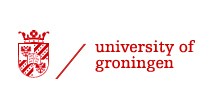Your Country is Europe Now
Quality of the education
Of course, this is what it’s all about. Even with all the other advantages below, you need to be sure that, by studying abroad, you will be receiving an education that is of good quality. The universities that we represent, who are recruiting Irish students onto their programmes through English, have excellent reputations and their qualifications are internationally recognised .
The experience
Going to university, whether at home or abroad, isn’t just about studying. By studying in another country, you will have a fantastic opportunity to experience a different culture and lifestyle. I f you are independent-minded, with a sense of adventure and a bit of initiative, studying abroad is a life-changing experience.
Value
The cost of attending many universities can work out as equivalent, or sometimes cheaper, than registering for an equivalent programme at home. In Central Europe, living costs are about half of that in Ireland. In some of the more established EU states, tuition fees are equivalent to, or lower, than in Ireland. For example, there are no fees for Irish students studying in Denmark and, in Holland, fees are just above €1900 pa
Create a Unique Selling Point
Studying abroad ensures that you get a unique selling point out of your undergraduate and postgraduate experiences, in addition to your parchment. Studying abroad is excellent character formation – it strengthens your independence, initiative and confidence. It will also ensure your CV is unique. Most importantly, in a global employment market, employers are increasingly looking for key personnel with international experience and foreign language skills.
Realistic Entry requirements
Entry requirements for postgraduate degrees, at most of the universities in Continental Europe, are currently significantly lower than those being set by Irish and UK universities. This is not a reflection of quality. It is a simply an indicator of different perceptions as to students’ “rights” to an education, as well as different national priorities as to the funding of university education.





